I have the following code:
Example is a class that I have no access to, and has Object original as an instance variable.
public class Example {
private Object original;
public Object getOriginal() {
return original;
{
}
changePointer(Object param) is a method that could be in any arbitrary static helper class (IE, Math).
public static void changePointer(Object param) {
//Change the pointer of original
}
I want changePointer(Object o) to be able to change the pointer of original.
The transformation must be done in changePointer(Object param). IE, the following isn't useful to me:
public static void exampleMethod() {
Object original = new Object();
original = changePointer(original);
}
public static Object changePointer(Object param) {
return new Object();
}
Refer to the below (crudely drawn) diagram:

As you can see, both Object 1 and Object 2 point to the same memory location.
My question: Is it possible to change the pointer of Object 1 using only the variable Object 2?
Other Information to Consider:
- I have no access to the creation of or any of the code that is part of
Example. - I DO have access to an instance of
Example. - I have no access to the creation of
originalinside ofExample. - I have no access to many of the methods that make use of
original. changePointer(Object param)may not be necessary. If it is possible to in some other way gain access to and changeoriginal, that would result in the same effect.
NOTE: I understand the concept of pass by reference vs pass by value. I know Java is pass by value, and that's not what I'm asking. I'm asking if there is any way, knowing that Java is pass by value, for the above to be possible.